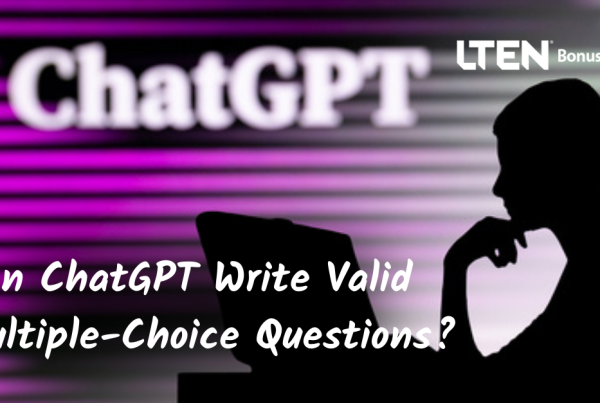
As we all know, over the past decade much of our training has transitioned from print to e-learning. And, to state the obvious, there are many advantages e-learning has over print: Its anytime/anywhere availability, the ease of update, the ability to incorporate audios, videos and animations, its interactivity, the trees saved, etc.
But, when we move our courses online we take something important for granted: That reading online is no different from reading in print. That there is no effect on comprehension. But is this true? Does reading online vs. reading in print really have no effect on comprehension and learning?
The authors of the study “Reading Linear Texts on Paper Versus Computer Screen: Effects on Reading Comprehension” (International Journal of Education Research, 2012) asked exactly that question.
In the study, the authors selected 72 Norwegian high school students to read two essays. One essay was narrative, the other expository. The essays contained both graphics and pictures. They divided the students into two groups. One group read the essays on a computer screen, in the form of a PDF; the other group read the essays in print. The post-test of reading comprehension consisted of both multiple choice and constructed response questions. To answer the questions students were able to refer back to the text during the test (i.e. it was an “open book” test). The test was given to both groups on the computer.
What did they find? They found that for both essays learners who read on paper had significantly higher reading comprehension scores than those who read on screen.
Why? The authors speculate on several reasons:
Reason 1: Students read differently online than in print.
In the article” Reading behavior in the digital environment” (Journal of Documentation, 2006) Ziming Liu concludes that students read differently online than in print. They tend to browse and scan, looking for keywords, rather than doing the “deep” reading we tend to do in print. A number of other studies have confirmed this finding.
Reason 2: Looking up information (open book) is easier in print than online.
This might seem counterintuitive. Certainly searching for information among many documents is easier online but what about finding information in a specific document that you have just read (presumably without a search function). In print documents, readers remember where information is spatially (i.e. “I remember where that information was. It was in the upper right hand corner of the first or second page.”). This ability is lost in on-screen text. Or as Kerr and Symons (“Computerized presentation of text: effects on children’s reading of informational material” Reading and Writing, 2006) put it: People who read on screen “have disrupted mental maps of the text.”
Reason 3: Seeing (and feeling) the print text in its entirety provides cognitive benefits
Comprehension involves more than remembering discrete facts. It involves creating mental models (or schema) of the material to be learned. When presented with a print document the student can immediately see and feel the scope of the task at hand. The authors speculate that this helps him/her create a visual (mental) model of the information. This is largely lost to on-screen readers, who can only see a page at a time and hence have more difficulty creating a mental map of the content as a whole. And scrolling text is even worse. Many studies have shown that scrolling text impedes comprehension by creating visual instability.
So, what are the implications? Clearly e-learning is not going away. But we do have to be aware that something has likely been lost as we made the transition from print to digital. So when we create courses online we need to be sure to incorporate learning techniques that facilitate recall and the construction of mental schema.
Steven Just, Ed.D. is CEO of Princeton Metrics. Steven can be reached at sjust@princetonmetrics.com. Check out his blog at www.princetonmetrics.wordpress.com.








